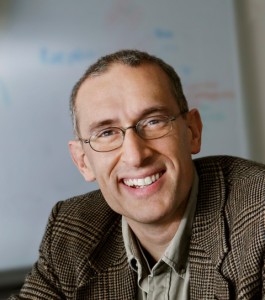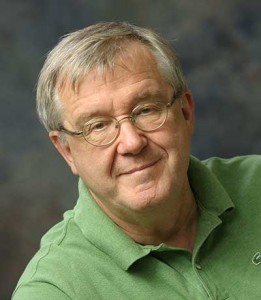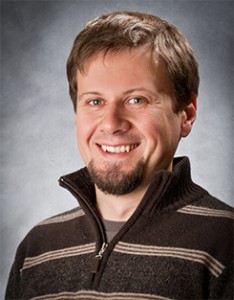
Aleksei Aksimentiev (UIUC) received his Master’s degree in physics from the Ivan Franko Lviv State University, Lviv, Ukraine, and his Ph.D. in chemistry from the Institute of Physical Chemistry, Warsaw, Poland. After a brief postdoctoral training at Mitsui Chemicals, Japan, he joined the Theoretical and Computational Biophysics Group, Urbana, IL, as a Postdoctoral Research Associate. In 2005, he became a Faculty Member of the Physics Department at the University of Illinois, where he is currently a Associate Professor of physics. His research interests include systems that combine biological macromolecules and man-made nanostructures, membrane proteins, and molecular machinery of DNA replication.
Narayana Aluru (UIUC)
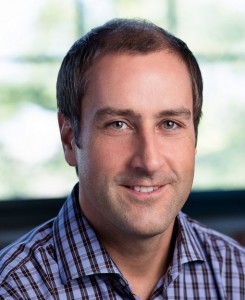
Mark Bathe (MIT) is an Assistant Professor in the Department of Biological Engineering at MIT with a joint appointment in the Department of Mechanical Engineering. He received his BSc, MSc, and PhD degrees from MIT in 1998, 2001, and 2004, respectively, in the Department of Mechanical Engineering. He directs the Laboratory for Computational Biology & Biophysics that seeks to develop innovative computational tools to enable the rational forward design of synthetic biological components based on structural DNA nanotechnology, and Bayesian approaches to reverse engineer dynamic biological processes from fluorescence imaging and spectroscopy data.
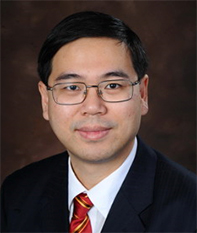
Xi Chen (Columbia University) received his Ph.D. in Solid Mechanics from Harvard University in 2001. He has been with Columbia University since 2003 and currently an Associate Professor with tenure. He uses multiscale theoretical, experimental, and numerical approaches to investigate various research frontiers in materials addressing challenges in energy and environment, nanomechanics, and mechanobiology. He received the NSF CAREER Award in 2007, the Presidential Early Career Award for Scientists and Engineers (PECASE) in 2008, ASME Sia Nemat-Nasser Early Career Award in 2010, SES Young Investigator Medal in 2011, and ASME Thomas J. R. Hughes Young Investigator Award in 2012. He is also a Changjiang Chair Professor of China.
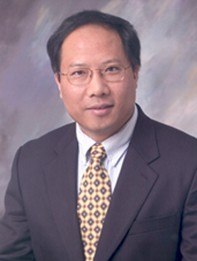
Weinong Chen (Purdue University) received his Ph.D. in Aeronautics at Caltech in 1995. He is currently Professor of Aeronautics, Astronautics and Materials Engineering at Purdue University. His research interests are in dynamic experimental technique development and dynamic material characterization. His precision dynamic experimental methods have been transferred to numerous laboratories. He is a Fellow of ASME and SEM, and an Associate Fellow of AIAA.
Guy Genin (Washington University) received B.S.C.E. and M.S. degrees in engineering mechanics from Case Western Reserve University in 1992, and S.M. and Ph.D. degrees in applied and solid mechanics from Harvard University in 1993 and 1996, and post-doctoral training at Cambridge and Brown. He is Professor of Mechanical Engineering and Materials Science at Washington University in St. Louis, and of Neurological Surgery at Washington University School of Medicine. His professional interests involve study of interfaces and adhesion in physiology, nature, and engineering. His current research focuses on connections between tendon and bone, and on interactions between plant and animal cells with their mechano-electric environment.
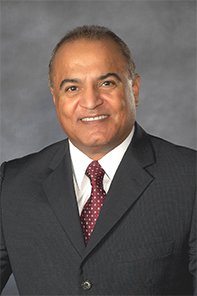
M. Samy El Shall (Virginia Commonwealth University) received his B.S. and M.S. degrees from Cairo University, and a Ph.D. from Georgetown University. He did postdoctoral research in nucleation and clusters at UCLA. His research interests are in the general areas of molecular clusters, nucleation phenomena, nanostructured materials, graphene and nanocatalysis for energy and environmental applications. He has published over 210 refereed papers and review chapters, and he holds eight US patents on the synthesis of nanomaterials, nanoalloys, nanoparticle catalysts, graphene, and graphene-supported catalysts. Dr. El-Shall received the Outstanding Faculty Award of Virginia in 1999; the Distinguished Research Award from the Virginia Section of the American Chemical Society in 2009; the Innovative Research Award from the Society of Automotive Engineering (SAE) in 2009; and the VCU Distinguished Scholarship Award in 2011. He was elected as a Fellow of the American Physical Society in 2012, and was selected as a Jefferson Science Fellow at the U.S. Department of State for 2012-2013.
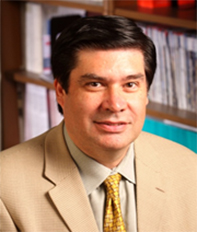
Horacio Dante Espinosa (Northwestern University) is the James and Nancy Farley Professor of Mechanical Engineering and the Director of the Theoretical and Applied Mechanics Program at the McCormick School of Engineering, Northwestern University. He is a foreign member of the European Academy of Sciences and Arts and of the Russian Academy of Engineering. He is also Fellow of the American Academy of Mechanics, the American Society of Mechanical Engineers, and the Society for Experimental Mechanics. He received two Young Investigator Awards, the NSF-Career and the Office of Naval Research-Young Investigator Award in 1997. He also received the American Academy of Mechanics (AAM) 2002-Junior Award, the Society for Experimental Mechanics (SEM) 2005 HETENYI Award, the Society of Engineering Science (SES) 2007 Junior Medal, and the 2008 LAZAN and 2103 Sia Nemat Nasser medals from the Society for Experimental Mechanics. He was the 2012 President of the Society of Engineering Science.
Professor Espinosa is also the founder and chief scientific officer of iNfinitesimal LLC, a nanotechnology company developing robust next-generation nanoscale devices, scalable nanomanufacturing tools, and microdevices for single cell transfection and analysis.
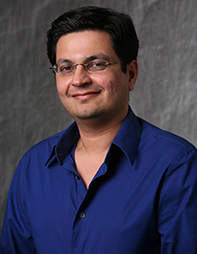 Nikhil Koratkar (Rensselaer Polytechnic Institute) is the John A. Clark and Edward T. Crossan Professor of Engineering at the Rensselaer Polytechnic Institute. He holds joint appointments in the Departments of Mechanical, Aerospace and Nuclear Engineering and Materials Science and Engineering at Rensselaer. Koratkar’s research work has focused on the synthesis, characterization, and application of nanoscale material systems. This includes graphene, graphene oxide, carbon nanotubes, fullerenes, as well as metal and silicon nanostructures produced by a variety of techniques such as exfoliation of graphite, chemical vapor deposition, and oblique angle sputter and e-beam deposition. Additional information regarding Koratkar’s research can be accessed at his homepage: http://www.rpi.edu/~koratn.
Nikhil Koratkar (Rensselaer Polytechnic Institute) is the John A. Clark and Edward T. Crossan Professor of Engineering at the Rensselaer Polytechnic Institute. He holds joint appointments in the Departments of Mechanical, Aerospace and Nuclear Engineering and Materials Science and Engineering at Rensselaer. Koratkar’s research work has focused on the synthesis, characterization, and application of nanoscale material systems. This includes graphene, graphene oxide, carbon nanotubes, fullerenes, as well as metal and silicon nanostructures produced by a variety of techniques such as exfoliation of graphite, chemical vapor deposition, and oblique angle sputter and e-beam deposition. Additional information regarding Koratkar’s research can be accessed at his homepage: http://www.rpi.edu/~koratn.
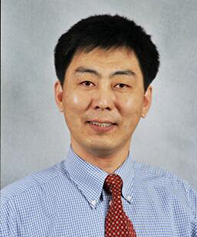
Xiaodong Li (University of Virginia) is Rolls Royce Professor in the Department of Mechanical and Aerospace Engineering at the University of Virginia. His research interests include nanomanufacturing, nanomaterial-enabled energy systems, surface engineering, biological and bio-inspired systems and devices, biomaterials, nano/biomechanics, and mechanics and tribology in nuclear and/or turbine energy systems. He has published over185 peer-reviewed journal articles and his publications have been cited over 4,000 times with a H-index of 31. He serves as Associate Editor for Transactions of the ASME – Applied Mechanics Reviews, and is on the editorial board for 10 journals.
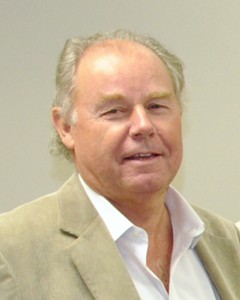 Jean-Pierre Leburton (UIUC) is the G. Stillman Professor of Electrical and Computer Engineering and Professor of Physics at the University of Illinois in Urbana-Champaign. He is also a full time Research Faculty in the Beckman Institute. He received his License (Bs) and PhD in solid state physics from the University of Liege, Belgium in 1978. Dr. Leburton joined the University of Illinois in 1981 from Germany, where he worked as a research scientist with the Siemens A.G. Research Laboratory in Munich. He is involved with research in nanostructures modeling and in quantum device simulation. His present research interest encompasses non-linear transport in quantum wires, carbon nanotubes, graphene, and molecular and ionic transport through semiconducting nanopores for biomolecule manipulation and sensing.
Jean-Pierre Leburton (UIUC) is the G. Stillman Professor of Electrical and Computer Engineering and Professor of Physics at the University of Illinois in Urbana-Champaign. He is also a full time Research Faculty in the Beckman Institute. He received his License (Bs) and PhD in solid state physics from the University of Liege, Belgium in 1978. Dr. Leburton joined the University of Illinois in 1981 from Germany, where he worked as a research scientist with the Siemens A.G. Research Laboratory in Munich. He is involved with research in nanostructures modeling and in quantum device simulation. His present research interest encompasses non-linear transport in quantum wires, carbon nanotubes, graphene, and molecular and ionic transport through semiconducting nanopores for biomolecule manipulation and sensing.
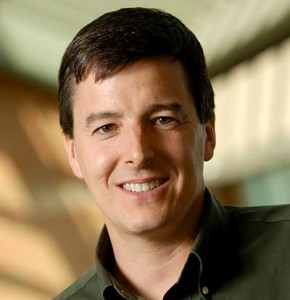 John A. Rogers (UIUC) received B.A. and B.S. degrees in chemistry and in physics from the University of Texas, Austin, in 1989. He earned S.M. degrees in physics and in chemistry in 1992, and a Ph.D. degree in physical chemistry in 1995, all from MIT. In 1997, he joined the Department of Condensed Matter Physics Research at Bell Laboratories. From 2000-2002 he served as Director of that department. He is currently a Founder Professor of Engineering in the University of Illinois departments of Materials Science and Engineering and of Chemistry. He is a full-time faculty member in the 3D Micro- and Nanosystems group. His research interests are in the science and engineering of unconventional, ‘soft’ materials – polymers, small molecules, fluids, carbon nanotubes — and in the development of unusual ways for patterning them with micron and nanometer resolution – printing, molding, near field photolithography.
John A. Rogers (UIUC) received B.A. and B.S. degrees in chemistry and in physics from the University of Texas, Austin, in 1989. He earned S.M. degrees in physics and in chemistry in 1992, and a Ph.D. degree in physical chemistry in 1995, all from MIT. In 1997, he joined the Department of Condensed Matter Physics Research at Bell Laboratories. From 2000-2002 he served as Director of that department. He is currently a Founder Professor of Engineering in the University of Illinois departments of Materials Science and Engineering and of Chemistry. He is a full-time faculty member in the 3D Micro- and Nanosystems group. His research interests are in the science and engineering of unconventional, ‘soft’ materials – polymers, small molecules, fluids, carbon nanotubes — and in the development of unusual ways for patterning them with micron and nanometer resolution – printing, molding, near field photolithography.
Klaus Schulten (UIUC) received his Ph.D. from Harvard University in 1974. He is Swanlund Professor of Physics and is also affiliated with the Department of Chemistry as well as with the Center for Biophysics and Computational Biology. Professor Schulten is a full-time faculty member in the Beckman Institute and directs the Theoretical and Computational Biophysics Group. His professional interests are theoretical physics and theoretical biology. His current research focuses on the structure and function of supramolecular systems in the living cell, and on the development of non-equilibrium statistical mechanical descriptions and efficient computing tools for structural biology.
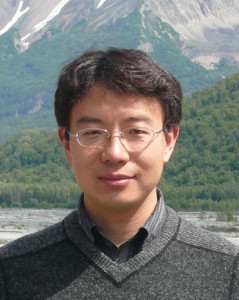
Peng Yin (Harvard) is an Assistant Professor in the Department of Systems Biology at Harvard Medical School and a Core Faculty Member at the Wyss Institute for Biologically Inspired Engineering at Harvard. He received his BSc in Biochemistry and Molecular Biology, and Bachelor of Economics from Peking University in 1998; and his MS in Molecular Cancer Biology and PhD in Computer Science from Duke University in 2000 and 2005, respectively. His research interests lie at the interface of information science, molecular engineering, and biology. The current focus is to engineer information directed self-assembly of nucleic acid (DNA/RNA) structures and devices, and to exploit such systems to do useful molecular work, e.g. probing and programming biological processes for bioimaging and therapeutic applications.
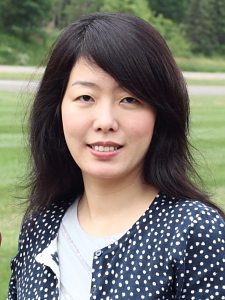
Katherine Yanhang Zhang (Boston University) is an Associate Professor of Departments of Mechanical and Biomedical Engineering and Director of the Multi-Scale Tissue Biomechanics Laboratory at Boston University. Dr. Zhang received her B.S. degree in Engineering Mechanics from Tsinghua University, China in 1998; and M.S. and Ph.D. degree in Mechanical Engineering from University of Colorado at Boulder in 2000 and 2003. She was a Clare Boothe Luce Assistant Professor of Boston University from 2006-2011. Dr. Zhang’s research has focused on multi-scale mechanics and mechanobiology of extracellular matrix and vasculature. She is the recipient of prestigious Faculty Early Career Development (CAREER) Award from NSF in 2010, and Young Faculty Award from DARPA in 2007.
